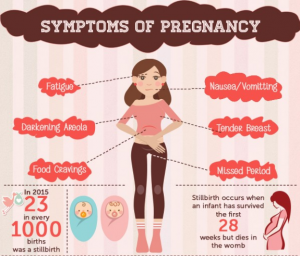Gestational Diabetes: Symptoms & causes

Gestational diabetes refers to the kind of diabetes that happens during pregnancy. It leads to high blood sugar levels that can affect both the mother and the baby. It typically develops around the 24th week of pregnancy and often goes away after the baby’s birth.
What is gestational diabetes?
Gestational diabetes refers to the form of diabetes that specifically affects pregnant women who have never had diabetes before. It is a condition in which a woman without previously diagnosed diabetes exhibits high blood glucose levels during pregnancy. This type of diabetes usually resolves after the baby is born. Still, if not correctly managed, it can pose risks for both the mother and the baby during pregnancy and delivery.
What are the causes of gestational diabetes?
During pregnancy, the placenta releases hormones that cause a buildup of glucose in the blood. Usually, the pancreas can produce enough insulin to handle this. However, if the pancreas can’t keep up and the glucose levels become too high, gestational diabetes occurs. The reasons why some women develop gestational diabetes while others don’t are still being researched.
What are the risk factors of gestational diabetes?
There are several factors that increase the risk of developing gestational diabetes, such as:
- Family History: Women with a family history of diabetes are at a higher risk.
- Obesity: Being overweight or obese before pregnancy increases the risk.
- Age: Women older than 25 are at a higher risk.
- Previous Gestational Diabetes: Women who have had gestational diabetes during a past pregnancy are more likely to develop it in future pregnancies.
- Polycystic Ovary Syndrome (PCOS): Women with PCOS are at a greater risk of developing gestational diabetes.
What are the signs of gestational diabetes?
Gestational diabetes symptoms often aren’t noticeable. However, some women might experience the following:
- Increased thirst
- Frequent urination
- Fatigue
- Nausea
- Blurred vision
- Frequent infections
How is gestational diabetes diagnosed?
Pregnant women are usually screened between the 24th and 28th weeks of pregnancy. The typical gestational diabetes test involves a glucose challenge test, which requires drinking a sugary solution and having blood drawn to measure blood glucose levels one hour later. A glucose tolerance test is performed if the initial test shows high glucose levels. This test requires fasting beforehand, consuming a sugary solution, and testing blood sugar levels over several hours.
How to manage gestational diabetes?
Managing gestational diabetes in pregnancy is crucial for the well-being of the mother and the developing baby. Here are some critical aspects of managing and preventing gestational diabetes:
- Gestational Diabetes Diet
Consuming healthy foods for gestational diabetes can help treat and manage the condition better. Focus on consuming whole grains, vegetables, fruits, and lean proteins while avoiding refined foods and excessive sugar. This helps regulate blood glucose levels and provides essential nutrients for the baby’s development.
- Regular Exercise
Engage in moderate physical activity as advised by the healthcare provider. Regular exercise helps boost insulin sensitivity and reduce blood sugar levels. It also aids in controlling weight gain during pregnancy.
- Monitoring Blood Sugar Levels
Regularly monitoring gestational diabetes ranges is essential to ensure they remain within healthy levels. Keeping track of these levels helps identify any fluctuations and enables timely adjustments to the management plan.
- Regular Prenatal Check-ups
Attending regular prenatal check-ups is vital for closely monitoring the health of both the mother and the baby. These check-ups allow healthcare providers to assess the progress of the pregnancy, track any potential complications, and provide necessary guidance and support.
In case of prevalence of gestational diabetes signs, seek comprehensive guidance and personalised advice on managing the condition by consulting a doctor. Early detection and gestational diabetes self-care are pivotal in ensuring a healthy pregnancy.
FAQs
- Can gestational diabetes harm the baby?
Yes, if not correctly managed, gestational diabetes can cause the baby to grow larger than average, increasing the risk of complications during delivery, such as shoulder dystocia. It can also increase the baby’s risk of developing low blood sugar levels, jaundice, and breathing problems.
- Will gestational diabetes go away?
Having gestational diabetes during one pregnancy doesn’t necessarily mean one will have it during future pregnancies. However, it does increase the risk of developing it in subsequent pregnancies and the risk of developing type 2 diabetes later in life.














